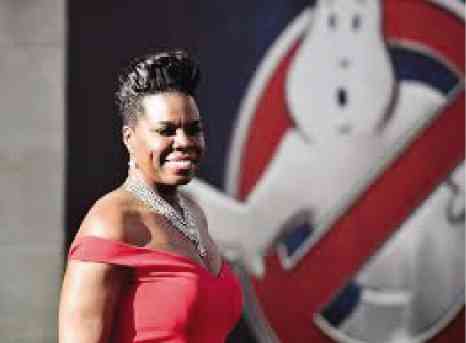The new, all-female “Ghostbusters” film was designed as a showcase for women’s clout in the movies—and at the box office.
It set out to prove that a macho, “buddy film” franchise could be “rebooted” to be driven and “carried” by female stars, and still end up as a certified hit.
That way, it would boost women’s generally unequal status in the filmmaking universe, and make the global population’s “better half” the equals they should by rights of numbers be in the movies.
In the light of that seminal change-making objective, how did Paul Feig’s movie do on its opening week? It posted a solid gross of $46M-plus, indicating that it enjoyed good viewer support—and affirmation.
But it wasn’t the top draw that week—the best gross was chalked up by “The Secret Life of Pets” with $50M—while already on its second week! (It had grossed a record-setting $104M on its opening week).
Ideally, the new “Ghostbusters” film would have topped its debut week, to definitively prove its point that a female-oriented film could rock the box office as hard as a “tough-guy” production.
The fact that it stopped a bit short of that could partly be a matter of tough luck (Why did it have to follow an unexpectedly strong juggernaut like “Secret Life”?). But it’s also a sign that viewers aren’t all that sold just yet on gender equality on the big screen.
Other contributing and inhibiting factors that could be relevant to this discussion and post-mortem dissection is the fact that its maker’s past “female-boosting” hits, like “Pitch Perfect” and “Bridesmaids,” were less expensive to produce than the new “Ghostbusters,” which cost around $140 M to bring in, all told.
Thus it’s been “forced” to do even better at the box office to be able to turn in a tidy profit. It could still end up doing that, but the pressure is on—and highly stressful.
The observation has also been made that the “Ghostbusters” film franchise is known for its edgy and earthy humor—but the new production cleaned up its act to come across more like a “for the family” film attraction—so, it may have lost some of its original audience and market in the process.
Summing up: “Ghostbusters” did really well but needed to do even better to prove its “radical,” pro-woman point. So, consider the “revolution” postponed, until the hopefully near future!
Another cautionary consequence to all this is the unexpected rage that the movie has triggered off in some viewers, who are using social media to hit some of the women involved in the production!
Disappointment and distrust would have been understandable—but rage? Where’s all of the vicious vitriol coming from?
Some dissers and haters dismiss the movie as a “TH” failure, because it isn’t as funny as the macho original.
Even more tellingly, quite a lot of the anger is directed at its lone black lead, Leslie Jones, whose looks—or what the haters perceive to be her lack of them—are savaged beyond the pits of “reverse pulchritude.”
To make the matter even more worrying, the attacks on Jones eventually acquire a literally racist “coloration,” so it looks like she’s being hated not just because she’s deemed to be an ineffective comedienne, but also because she’s black.
Hey, knock it off, that’s really vile!
